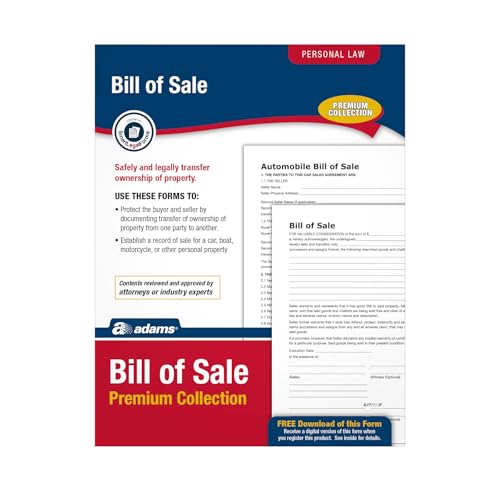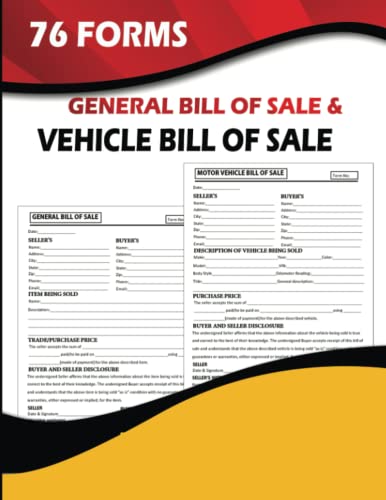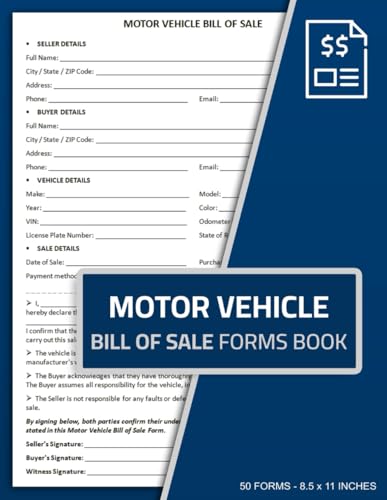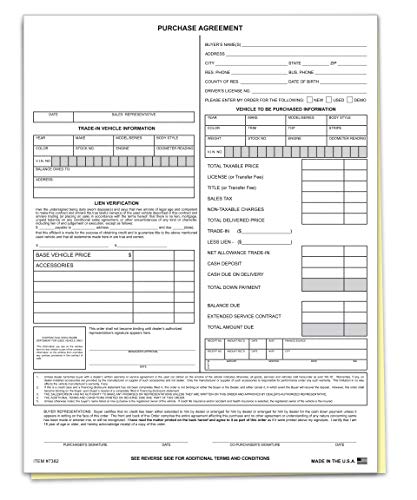So, you’re ready to sell your car but can’t find the title. Is the deal dead in the water? Not necessarily, but you need a solid game plan. This common problem can feel like a major roadblock, leaving you wondering if it’s even legal to proceed and what steps you need to take to protect yourself and the buyer.
Generally, you need a vehicle title to legally sell a car, as it is the official proof of ownership. Selling without it can be illegal, but specific exceptions and procedures exist depending on your situation and your state’s specific regulations.
Leveraging extensive analysis of state regulations and common transaction requirements, this guide unpacks the proven paths and critical paperwork you need. We’ll show you how to diagnose your exact situation, get the right documents, and navigate the sale legally and confidently, whether you’ve lost the title, have a lien on the vehicle, or are dealing with a classic car.
Key Facts
- It’s Often Illegal: Selling a vehicle without a title or proper proof of ownership is illegal in most states and can lead to significant penalties for the seller, including fines and potential jail time.
- Age Matters: Some states exempt older vehicles from title requirements. For example, Vermont allows the sale of vehicles 15 years or older with just a bill of sale and registration, a strategy that can be used to establish ownership in other states.
- Odometer Disclosure is Federal Law: To prevent fraud, federal law requires a written odometer disclosure for any vehicle that is under 10 years old, a detail that is critical for a legal sale.
- Liability Release is Crucial: Many states require you to notify the DMV of a sale within a specific timeframe (e.g., within 5 days in California) to officially release you from any future liability for tickets, accidents, or crimes involving the car.
- Liens Must Be Cleared: If a lender has a lien on your car, you cannot transfer a clear title. The loan must be fully paid off to obtain a lien release document, which is essential for the sale.
Selling a Car Without a Title: Is It Possible? The Definitive Guide for 2025
The short answer is yes, it’s sometimes possible, but it’s complicated. Do you need a title to sell a car? In almost every standard transaction, the answer is a resounding yes. The vehicle title is the single most important document in a car sale; it is the government-issued, legal proof that you are the rightful owner with the authority to sell the vehicle. Without it, you cannot legally transfer ownership to a new person.

Attempting to sell a car without navigating the proper legal channels for a missing title isn’t just risky—it can be illegal.
Selling a car you don’t have a title for without following the correct procedures can expose you to fraud accusations, fines, and serious legal trouble. For the buyer, it creates a nightmare scenario where they may be unable to register, insure, or legally drive the car they just paid for.
So, while the answer to “do you need a title to sell a car” is generally yes, the real question becomes: what do you do when you don’t have one? Fortunately, there are established legal pathways to resolve this issue, but the right path depends entirely on why the title is missing in the first place.
First, Why Is the Title Missing? Diagnosing Your Situation
Before you can find the solution, you must correctly identify the problem. The reason you don’t have the car title in your possession dictates the entire process you’ll need to follow. Each scenario has a distinct set of steps, paperwork, and potential challenges.
Find your scenario below? The next sections will walk you through the exact steps for each.
- Lost, Stolen, or Damaged: This is the most common reason. You once had the title, but it has been misplaced, destroyed, or stolen. This is also the most straightforward problem to solve by obtaining a replacement.
- A Lender (Lienholder) Holds It: If you have an outstanding auto loan, the bank or financial institution is the legal lienholder and physically holds the title until the loan is paid in full. You cannot get the title until the debt is satisfied.
- The Vehicle is Old (Title-Exempt): In some states, very old vehicles are exempt from titling requirements. The age threshold varies, but it’s often 25 years or older. A famous exception is Vermont, which exempts vehicles over 15 years old. In these cases, a bill of sale and previous registration may suffice.
- It’s an Inherited Vehicle: If you inherited the car from a deceased family member, the title is still in their name. You will need to follow a specific legal process, often involving probate court documents, to have the title transferred to you before you can sell it.
Path #1: The Most Direct Solution – Getting a Replacement Title
For a lost, stolen, or damaged title, the best and most legally sound solution is to apply for a duplicate or replacement title from your state’s Department of Motor Vehicles (DMV) or equivalent agency. This process officially re-establishes you as the clear owner and gives you the exact document you need to sell the car without any complications.
Here is the step-by-step process:
- Contact Your State’s DMV: Start by visiting your state’s DMV website or calling their office. They will provide the specific requirements, fees, and forms needed for a duplicate title application in your state.
- Complete the Required Application Form: You will need to fill out an “Application for Duplicate Title” form. For example, in California, this is part of Form REG 227. The form will ask for your personal information and vehicle details, including the Vehicle Identification Number (VIN).
- Provide Identification and Pay the Fee: You will need to present a valid, government-issued photo ID, such as a driver’s license, to prove your identity. There will also be a fee for the service, which varies from state to state.
- Get a Notarized Lien Release (If Applicable): If your original title had a lien on it that has since been paid off, you will need to provide a lien release letter from the original lender. In some states, this document must be notarized to be considered valid.
Pro Tip: Check your state’s DMV website before you go. Many allow you to start the application process online, saving you a trip! Once you submit the application and pay the fee, the DMV will process it and mail you a new, official title. This is the cleanest way to answer the question, “do you need a title to sell a car,” with a confident “yes, and here it is.”
Path #2: Navigating Special Circumstances & Alternative Options
What if getting a simple duplicate title isn’t an option? More complex situations, like an outstanding loan or a very old car, require different strategies. These paths are more involved but are the correct legal ways to proceed when a standard replacement isn’t feasible.
When a Lender Holds the Title (Lien)
If you’re still paying off your car loan, you don’t technically have the right to sell the car freely because the bank is the primary lienholder. To sell the car, you must pay off the loan to clear the lien.
Here’s how to handle it:
- Contact the Lender for the Payoff Amount: Call your bank or financial institution and request the 10-day payoff amount for your auto loan. This is the exact amount needed to satisfy the loan, including any prorated interest.
- Arrange Payment with the Buyer: The most common method is to conduct the transaction at the buyer’s bank or your bank. The buyer can pay you, and you can immediately use those funds to pay off the loan, or the buyer can pay the lender directly.
- Obtain a Lien Release Document: Once the loan is paid in full, the lender will provide a lien release document and send the physical title to you. With the clear title in hand, you can then sign it over to the buyer to finalize the legal transfer.
Quick Fact: Some banks can work directly with the buyer’s bank to transfer the title and funds simultaneously, streamlining the process.
For Older & Title-Exempt Vehicles
If you have a very old car, you might not need a title at all. Some states have specific exemptions for antique, classic, or vehicles of a certain age, recognizing that titles may have been lost to time or were never issued in the first place.
- State-Specific Age Exemptions: Many states, like New York, exempt vehicles older than a certain model year (e.g., pre-1973) from needing a title. Other states use an age-based rule, often for cars 25 years or older. In these cases, a signed-over registration and a detailed bill of sale are typically sufficient for the transfer of ownership.
- The “Vermont Loophole”: Vermont has a well-known process that allows you to register a vehicle that is 15 years or older with just a bill of sale and the required fees, even if you are not a Vermont resident.
The “Vermont Loophole” is not a shady trick; it’s a legitimate state process. Once you receive the Vermont registration in your name, that registration serves as official proof of ownership. You can then use that Vermont registration to sell the car or to apply for a new title in your home state.
This strategy is particularly useful for older project cars, barn finds, or vehicles where the title is hopelessly lost and a duplicate is impossible to obtain.
Your Essential Paperwork: The Non-Negotiable Documents
Even if you manage to sell a car using a title-exempt method, you still need a strong paper trail to make the transaction legal and protect yourself from future liability. A comprehensive Bill of Sale is the cornerstone of this process.
A proper Bill of Sale should include the following information:
| Information | Why It’s Critical |
|---|---|
| Vehicle Year, Make, Model, and VIN | Uniquely identifies the exact vehicle being sold to prevent any disputes. |
| Purchase Price and Date of Sale | Serves as the official receipt for both parties and is used by the buyer for sales tax purposes. |
| Full Names and Addresses of Buyer & Seller | Legally identifies the parties involved in the transaction. |
| Odometer Reading at Time of Sale | A federal requirement for cars under 10 years old to prevent mileage fraud. |
| Signatures of Both Parties | Acknowledges that both the buyer and seller agree to the terms of the sale. |
Pro Tip: Even if your state doesn’t require a bill of sale to be notarized, doing so adds a significant layer of legal protection for both you and the buyer.
Beyond the Bill of Sale, you will also need:
- Odometer Disclosure Statement: As mentioned, this is required by federal law for vehicles less than 10 years old. Often this is on the title itself, but if you’re selling without one, a separate form is necessary.
- Lien Release: If the car ever had a loan, you must provide the official document from the lender proving the loan has been paid in full.
- Valid Identification: The buyer will want to see your government-issued ID to confirm you are who you say you are.
Finalizing the Sale: State-Specific Steps & Post-Sale Actions
Once the money has been exchanged and the paperwork is signed, your job as the seller is not quite finished. Taking these final steps is crucial to ensure you are no longer legally responsible for the vehicle.
- Be Transparent with the Buyer: From the very beginning, be completely honest about the title situation. A transparent process builds trust and ensures the buyer knows exactly what they need to do to get the car registered.
- Notarize Documents (If Required): Check if your state requires the Bill of Sale or other transfer documents to be notarized. Even if it’s not mandatory, it’s a wise step.
- Notify the DMV of the Sale (Release Liability): This is one of the most important steps. Most states require you to file a “Notice of Sale” or “Release of Liability” form. This must be done within a strict timeframe (e.g., within 5 days in California or immediately in Arizona). This form officially tells the state you no longer own the car, protecting you from any future parking tickets, tolls, or accidents involving the vehicle.
- Handle License Plates: State laws vary. In most states, you, the seller, must remove your license plates from the car. Do not let the buyer drive away with your plates on the vehicle.
- Keep Copies of Everything: Make copies of the signed Bill of Sale, the Release of Liability form, and any other transaction documents. Store them in a safe place as your proof of the sale.
- Cancel Insurance: Once you have filed the release of liability, call your insurance company to cancel the policy on the car you just sold.
Don’t skip the last step! Forgetting to cancel your insurance and registration on a car you no longer own can lead to unnecessary costs and headaches.
To ensure your car sale is legal and complete, investing in a set of proper vehicle bill of sale forms and a document holder can keep your critical paperwork organized and protected.
FAQs About Selling a Car Without a Title
Why would someone sell a car without a title?
A seller might not have a title for several reasons. In many cases, it’s simply a matter of convenience or cost; they may have lost it and haven’t gone through the process of getting a replacement. Other common reasons include:
* The vehicle has an unpaid lien, and the lender still holds the title.
* The car is very old and qualifies as title-exempt in their state.
* They are selling the car for parts only, where a title is less critical.
Can I sell a car without putting the title in my name first?
No. Selling a car without first transferring the title into your name is an illegal practice known as “title skipping” or “title jumping.” The person whose name is on the title as the owner is the only one with the legal authority to sell it.
Warning: Title skipping is a crime in most states and is done to avoid paying sales tax and registration fees. If you are caught, you can face significant fines and even potential jail time. You must be the legal owner on the title to have the authority to sell it.
Can I sell my car to a dealership without the title in hand?
Yes, you can often sell a car to a dealership if you don’t have the title physically, especially if it’s being held by a lienholder. Dealerships have dedicated staff and established processes to handle this. They will verify the payoff amount with your lender, handle the payment, and obtain the title directly from the bank as part of the transaction. This is often easier than managing a private sale with a lien.
What are the risks of buying a car without a title?
Buying a car without a title is extremely risky and generally not recommended. The buyer faces several significant dangers:
* The vehicle could be stolen, and you would lose both the car and your money.
* There may be an undisclosed lien on the car, meaning a bank could repossess it.
* You will likely be unable to register, title, or get insurance for the car in your name.
* You have no legal proof of ownership and little recourse against the seller if something goes wrong.
Final Summary: The Safest Path to Selling Your Car
Navigating the sale of a car without a title can feel like a maze of regulations and paperwork. While it’s true that there are legitimate pathways for selling in specific situations—like with title-exempt classic cars or when a lienholder has the title—these are the exceptions, not the rule. The fundamental answer to “do you need a title to sell a car” remains a firm “yes” for a secure, legal, and hassle-free transaction.
For the vast majority of sellers, the time and small expense required to obtain a duplicate title from the DMV are an invaluable investment. It eliminates all ambiguity, protects you and the buyer, and ensures the smooth transfer of ownership.
To recap the most critical takeaways:
- Get the Title: If your title is lost, stolen, or damaged, your first and best action is to apply for a duplicate from your state’s DMV. This is the gold standard.
- Document Everything: Use a comprehensive Bill of Sale for every transaction, especially when a title is not present. It is your primary legal protection.
- Release Your Liability: Always file a Notice of Sale form with your DMV immediately after the transaction to officially sever your legal responsibility for the vehicle.
Use this guide as your roadmap to navigate the process legally and confidently protect yourself during the sale
Last update on 2025-07-31 / Affiliate links / Images from Amazon Product Advertising API













